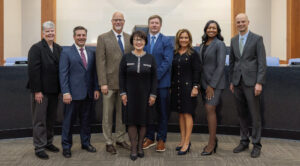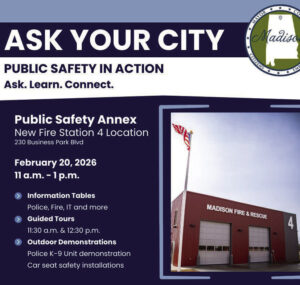Cancer survivor stresses self-exams
Tricia Pitts considers herself one of the lucky ones.
She was diagnosed with breast cancer in March of 2007, and by September of that same year, she was cancer free.
“It takes a lot out of you,” said Pitts, 54. “But you take it a day at a time.”
Pitts said it’s devastating for anyone to receive the news that they have cancer, but said people have to push forward and handle the situation to the best of their ability.
“The treatments nowadays are so good,” she said. “(Doctors) can’t give you promises, but they can give you time and a good quality of life. Finding out you have breast cancer isn’t a death sentence. I’ve met people who had been diagnosed with stage three breast cancer and are still doing fine 15 years later.”
The message Pitts wants to deliver to the women of Madison: “you have to do your self-exams.”
Pitt, a 30-year member of the local Rainbow Mountain Club, said she has been giving herself breast exams ever since a member of the club, who passed away from cancer 10 years ago, asked the women during roll call at every meeting if they had examined themselves.
“That’s what really saved me,” she said.
Six months after receiving a “clear” on her mammogram, she conducted a self-exam and discovered a lump. At first, doctors thought it was a cyst, so they watched it for two months before finally figuring out it was a tumor.
“It was a complete shock because there was no breast cancer in my family,” she said, “so we weren’t expecting it. I’m healthy, I always eat right and take care of myself. It’s one of those things you think just happens to other people.”
The National Cancer Institute recommends women over 40 have mammograms every one to two years. But, Pitts said, it’s crucial that women take the initiative to examine themselves.
“You can’t always rely on mammograms once a year, because cancer can happen any time,” she said. “You can’t always rely on the doctor or husband—you have to do it.”
Although she had a double mastectomy, endured 16 weeks of chemo and lost her hair, she said she saw a lot of women who had it worse than she did. She advises women who are going through the battle to not feel sorry for themselves.
“I have learned to appreciate everyday,” she said. “And while I have always had sympathy for people, this has made me have empathy for people that I see suffering.”
Pitts said no one could truly understand what the struggle is like unless it affects them or a family member.
“Reach out to friends and family. You need their support,” she said. “And just know that things are going to get better. Look to the future and pray–that is what I did a lot. That’s where I got a lot of my strength.”
















